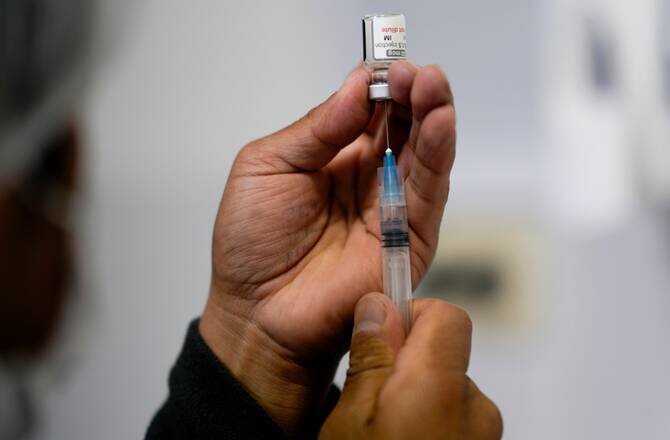
COVID-19 Vaccines May Boost Cancer Patients' Immune Response Against Tumors
COVID-19 vaccines, particularly those developed by Pfizer and Moderna, may offer an unexpected benefit for some individuals with advanced lung or skin cancer. According to preliminary research published in the journal Nature, these vaccinated cancer patients who were undergoing immunotherapy treatment experienced a significant increase in survival rates compared to those who did not receive the vaccine.
The study, conducted by researchers from MD Anderson Cancer Center in Houston and the University of Florida, found that the mRNA component of the vaccines appears to enhance the immune system's response to cancer treatments. Dr. Adam Grippin, lead researcher from MD Anderson, explained that the vaccine acts as a signal (similar to a siren) that activates immune cells throughout the body. This sensitizes the immune system to respond more effectively to cancer drugs known as checkpoint inhibitors.
Checkpoint inhibitors are designed to remove a 'cloak' that allows certain tumors to evade immune attacks. However, in some cases, even with this treatment, the immune cells do not recognize the tumor. By adding mRNA vaccines to this therapy, researchers believe they can improve outcomes for patients whose cancer has progressed.
Messenger RNA (mRNA) is naturally found within every cell and provides genetic instructions for protein production. While mRNA vaccines are best known for their role in COVID-19 treatments, scientists have been exploring the possibility of creating personalized mRNA "treatment vaccines" that train immune cells to target unique features of an individual's tumor.
The findings from this research suggest that even non-personalized mRNA vaccines might have a beneficial effect on cancer patients. Dr. Jeff Coller, an mRNA specialist at Johns Hopkins University who was not involved in the study, noted that these results provide evidence that mRNA medicines continue to surprise researchers with their potential benefits for human health.
The preliminary study analyzed data from nearly 1,000 advanced cancer patients undergoing checkpoint inhibitor treatment at MD Anderson. The results indicated that vaccinated lung cancer patients were nearly twice as likely to survive three years after starting treatment compared to those who did not receive the vaccine. Melanoma patients also showed extended median survival times, although exact differences in outcomes could not be precisely quantified due to some individuals still being alive at the time of data analysis.
These findings have sparked interest in further research into pairing mRNA COVID-19 vaccines with cancer drugs and potentially developing new mRNA vaccines specifically for use in treating cancer. While more rigorous studies are needed, this early evidence highlights the potential cross-over benefits between COVID-19 vaccination and cancer treatment outcomes.











